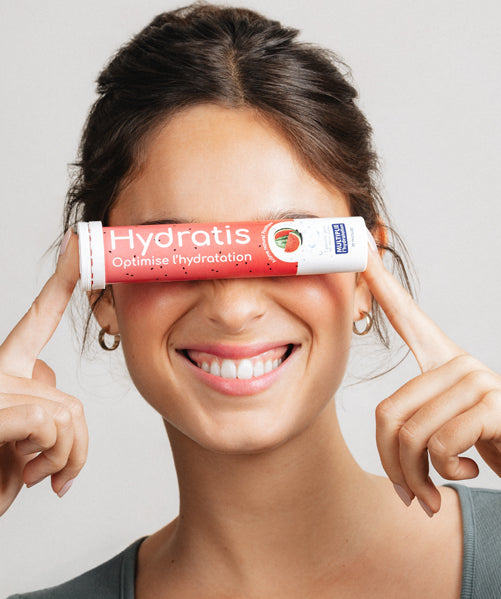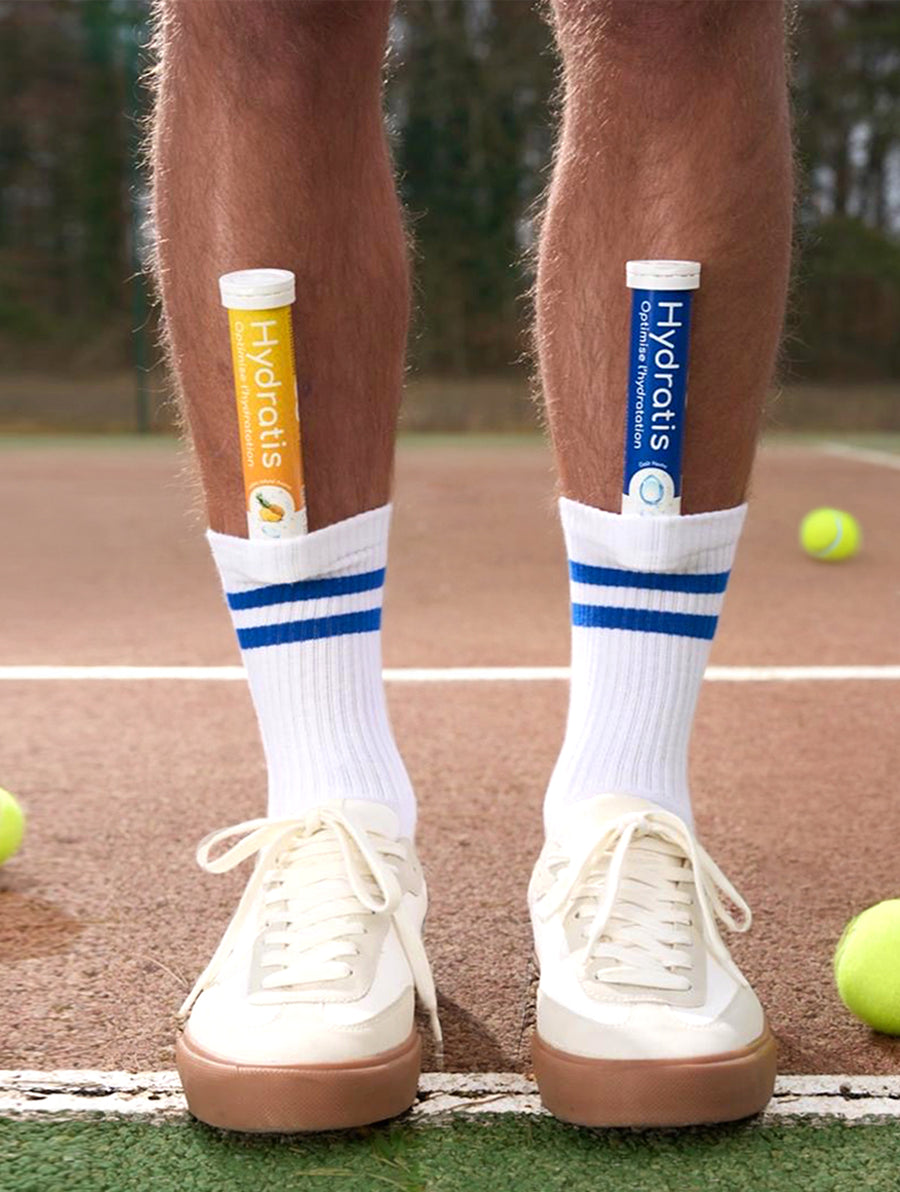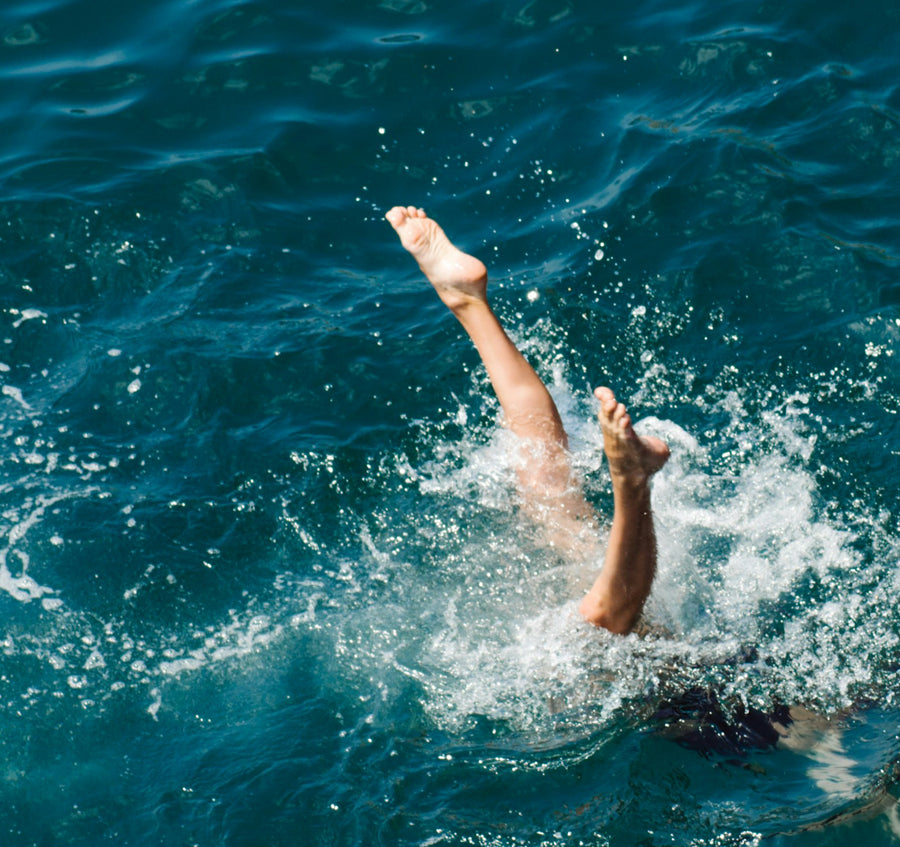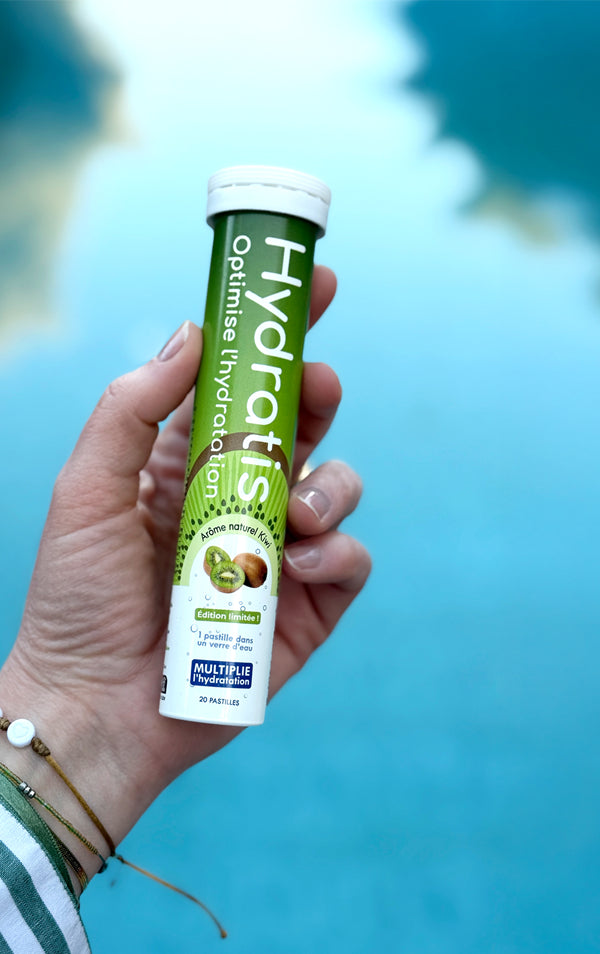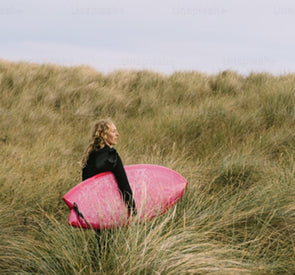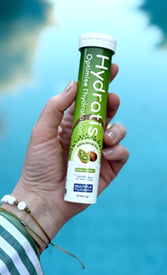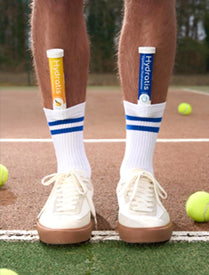Changes in temperature and particularly hot or cold climates are very dehydrating for our bodies. It is important to understand the impact of these climates on our bodies and the tips to remember to avoid dehydration .
What are the underlying mechanisms? What are the best practices to adopt?
Hot climate
A warm climate leads to an increase in your body's core temperature .
This results in a higher rate of perspiration, leading to a loss of fluid and electrolytes. It is through perspiration that our body cools itself.
When the outside temperature is too high, our bodies struggle to cool down effectively. This can lead to heat exhaustion , among other things.
Engaging in physical work or endurance exercises in high heat will increase the risk of dehydration . This will accelerate the rate at which your body loses fluids and lead to dehydration , especially if electrolytes are not replenished.
It is therefore essential to stay continuously hydrated to combat dehydration in hot weather, regardless of your activity level. This will help lower your body temperature and replace the fluids and minerals you lose through perspiration. Water enriched with electrolytes should be preferred and consumed before you feel thirsty.
Here are some tips to avoid dehydration in hot weather:
✓ You can flavor your water if it helps you drink more, allowing you to combine pleasure and hydration.
✓ Don't wait until you're thirsty to drink and always have water available .
✓ Prefer to stay in a cool place (or at least in the shade outside).
✓ Eat fruits and vegetables rich in water and mineral salts (cucumber, watermelon, etc.) throughout the day for even more hydration.
✓ Avoid drinks that contain caffeine or other stimulants ; they are not a suitable rehydration liquid because they are diuretics.
✓ Avoid the sun in the middle of the day; opt for exercise early in the morning or in the evening instead.
✓ Wear sunscreen and a hat ; sunburn prevents your body from cooling down properly.
✓ Wear thin and loose clothing , this allows good air circulation, which helps perspiration to evaporate.
Cold climate
The effect of cold should not be overlooked, as it generates the same risks of dehydration as a heatwave!
Contact between skin and air induces a natural evaporation process; some of the water contained in the skin evaporates. When it is cold, the air is drier, thus increasing water loss through the skin.
Furthermore, cold causes the blood vessels near the surface of the skin to constrict . This leads to a decrease in blood flow and the amount of water carried by the blood. The skin's natural hydration is therefore reduced and cannot compensate for the water that evaporates upon contact with cold, dry air.
In cold weather, the body's thirst response is reduced (by up to 40% even in cases of dehydration). This occurs because our blood vessels constrict when we are cold to prevent blood from flowing freely to the extremities. This allows the body to conserve heat by drawing more blood to the heart.
In winter, dehydration is further exacerbated by the temperature fluctuations the body experiences as it constantly moves between hot and cold environments. Heating also contributes to increased water loss.
In cold weather, we lose more fluid through respiratory water loss . For example, when you can see your own breath, it's actually water vapor that your body is losing. The colder the temperature and the more intense the exercise, the more vapor you lose when you breathe.
Sweat evaporates more quickly in cold air. We often think we don't sweat in cold, dry weather because it tends to evaporate so quickly. This is another factor that can contribute to decreased thirst .
Here are some tips to avoid dehydration in cold weather:
✓ Ensure good skin hydration : Apply a moisturizing cream (and a moisturizing lip balm) morning and evening to limit surface water loss by retaining it in the cells of the upper layer of the epidermis.
✓ Make sure you drink enough : 6 to 8 glasses a day in the form of water, herbal tea, broth...
✓ Avoid sudden temperature changes : frequent transitions between hot and cold environments worsen dehydration. Opt for wearing several layers of clothing that can be added or removed as needed. The goal is to maintain a consistent temperature .
✓ Avoid overheating your home : Air that is too hot and dry can worsen dehydration. It's important to be able to control the temperature in your home. Humidifying the air is also essential; using a humidifier is a helpful way to combat dehydration. Avoid excessively hot showers and baths as well.
Whether it's hot and humid or cold and dry , proper hydration is essential to counteract the effects of these climates, which are particularly conducive to dehydration. Staying hydrated, eating a balanced diet, and following our advice will help you maintain good hydration throughout the winter and summer .
The Hydratis solution
HYDRATIS , in addition to providing you with mineral salts and trace elements , allows water to be absorbed more quickly and efficiently. Adding one Hydratis tablet to your water will optimize its absorption and maximize your hydration .
